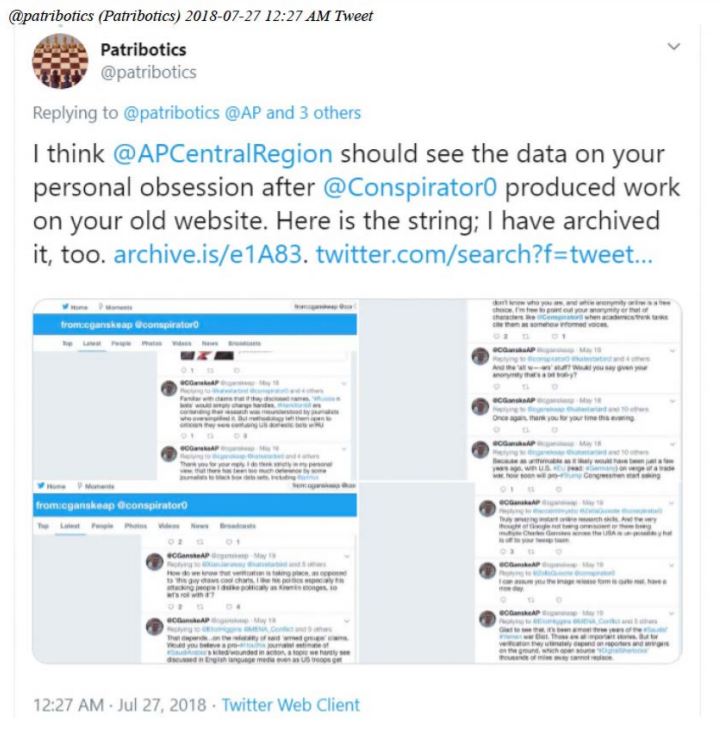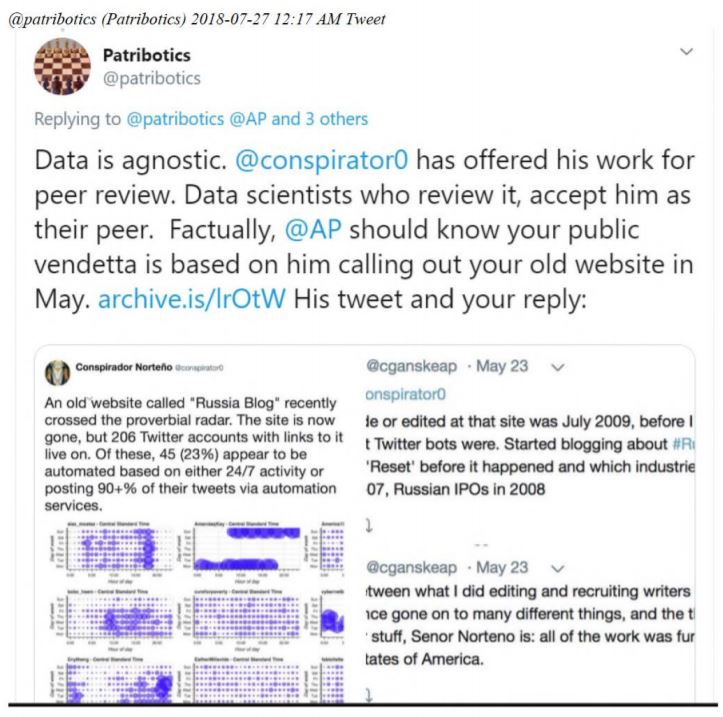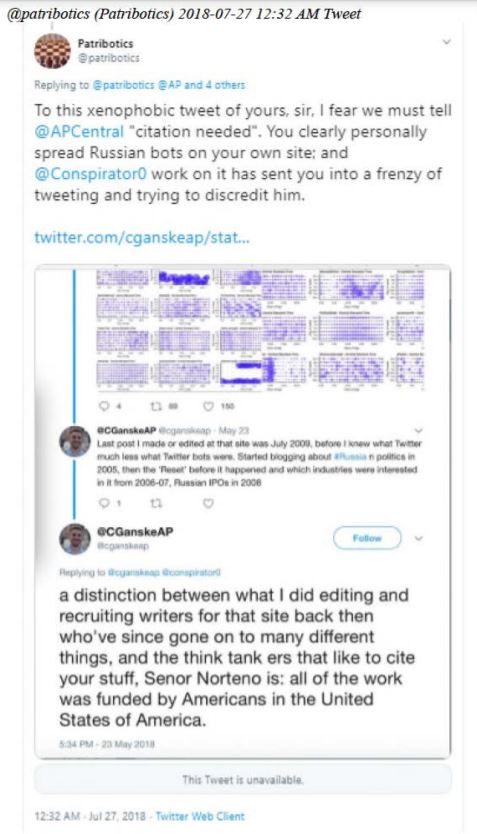Twibel Lawsuit Fails–Ganske v. Mensch
 This Twibel opinion starts off colorfully: “If the Internet is akin to the Wild West, as many have suggested, Twitter is, perhaps, the shooting gallery, where verbal gunslingers engage in prolonged hyperbolic crossfire. It is in this context of battle by tweet that the conduct at issue in this defamation case was born.” Although, to be honest, the thread at issue here was hardly an exemplar of verbal gunslingers engaged in hyperbolic crossfire on Twitter.
This Twibel opinion starts off colorfully: “If the Internet is akin to the Wild West, as many have suggested, Twitter is, perhaps, the shooting gallery, where verbal gunslingers engage in prolonged hyperbolic crossfire. It is in this context of battle by tweet that the conduct at issue in this defamation case was born.” Although, to be honest, the thread at issue here was hardly an exemplar of verbal gunslingers engaged in hyperbolic crossfire on Twitter.
Ganske was a social media specialist at the Associated Press. He tweeted @CGanskeAP. Mensch allegedly calls out possible Russian collusion on Twitter. She tweeted @patribotics (among other aliases). Ganske was having a back-and-forth on Twitter with a third-party account, @Conspirator0, when Mensch chimed in:
In considering the motion to dismiss, the judge takes judicial notice of two other tweets Mensch made within a 20 minute span because “Defendant’s two other July 27, 2018 tweets are integral to the allegations in the complaint and necessary to place her comments in context.”

 (As an outsider to this conversation, I’m having a tough time following the thread).
(As an outsider to this conversation, I’m having a tough time following the thread).
Soon after the exchange, the AP fired Ganske. Ganske sued Mensch for defamation and tortious interference. Ganske alleged the following three instances of defamation: (1) “[t]o this xenophobic tweet of yours, sir, I fear we must tell @APCentral ‘citation needed[]’”; (2) “[y]ou clearly personally spread Russian bots on your own site”; and (3) “@Conspirator0 work on it has sent you into a frenzy of tweeting and trying to discredit him.” The court concludes that they are all non-actionable opinion and dismisses the case.
The court first acknowledges that Twitter is a crazy place, which “conveys a strong signal to a reasonable reader” that the statements are opinion:
In analyzing the unique context of statements made on Internet fora, courts have emphasized the generally informal and unedited nature of these communications. This context, as some courts have concluded, leads “readers [to] give less credence to allegedly defamatory remarks published on the Internet than to similar remarks made in other contexts.” [cite to Sandals v. Google] Like the other Internet fora discussed in the above-cited cases, Twitter’s forum is equally — if not more — informal and “freewheeling.”
[Some other uncited cases in this genre include Milazzo v. Connolly, LeBlanc v. Skinner, Seldon v. Compass Restaurant, Chaker v. Mateo, DiMeo v. Max, Finkel v. Dauber, Bellavia Blatt v. Kel Partners, and Spencer v. Glover.]
Other reasons why the “xenophobic” reference is an opinion:
- “Although the term ‘xenophobic’ does have a fairly clear meaning in the context of the Tweet, it is not capable of being proven true or false.”
- “Defendant’s statement that Plaintiff’s tweet was ‘xenophobic’ was a reaction to — and personal opinion about — Plaintiff’s own words” (the Senor Norteno comment, presumably intended as a putdown).
- “the term ‘xenophobic’ is, at a minimum, analogous to — if not, more ‘fiery rhetoric’ than — other words that courts in this district have found to constitute ‘rhetorical hyperbole’ and ‘imaginative expression’ that is typically understood as a statement of opinion.”
The claim that Ganske spread Russian bots is capable of being true or false, but it nevertheless was an opinion. Mensch referenced the supporting work of @Conspirator0 and hyperlinked to that work. “Several courts have determined that the inclusion of a hyperlink to a report or article in a communication shared on an Internet forum is a sufficient means of disclosing a factual basis on which an opinion rests.” [Cite to Adelson v. Harris].
The assertion that Ganske has been sent into a “frenzy” is obviously opinion.
The tortious interference claim failed as duplicative of the defamation claim.
This opinion exhibits two of the hallmarks of modern Internet defamation cases:
- Courts think readers discount fact-like claims because they are made in rough-and-tumble environments like Twitter
- Hyperlinking to sources can convert a fact-like claim into an opinion about the material at the hyperlink’s terminus.
Case citation: Ganske v. Mensch, 2020 WL 4890423 (SDNY Aug. 20, 2020)
Selected Related Posts on Twibel
- Court Can’t Compel Twitter to Shut Down Trump’s Account
- Tweet Containing Question Mark Isn’t Defamatory–Boulger v. Woods
- Twitter Defamation Claim Defeated by a Question Mark–Boulger v. Woods
- Trump Can’t Commit Twibel Because He Routinely ‘Deflects Serious Consideration’–Jacobus v. Trump
- Courtney Love Defeats Twibel Claims–Holmes v. Love
- Twibel Ruling: Tweeting That Someone is “Fucking Crazy” is Not Defamatory
- A Twitter Exception for Defamation?


Pingback: News of the Week; September 9, 2020 – Communications Law at Allard Hall()